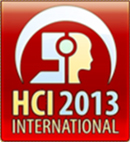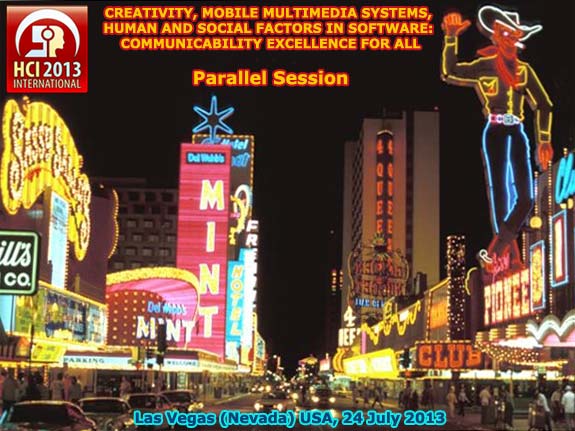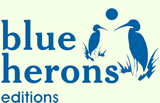Parallel Session
Creativity, Mobile Multimedia Systems, Human and Social Factors in Software: Communicability Excellence for All
Being organized in the context of HCI International 2013
:: Las Vegas (Nevada) USA :: July 24, 2013 ::
HOME |
|
Introduction, Topics, Program, Deadlines, Program Committee, and Additional Notes 1. Introduction and Topics One of the more frequently used terms in the educational marketing for the design of interactive systems is creativity. However, when we analyze it we realize that creativity actually resides in the advertisement to recruit potential students – or clients, as they are called in some public, private, mixed or hybrid academic environments – for specialization courses, continuous training, masters, etc. As opposed to the creativity in advertisement, its absence in the educational programs and in the contents of the interactive systems made as exercises in those programs, is striking. The hardware, constantly evolving ahead of the software, requires strong computer science knowledge and high quality systems to be easily available at any time and at low cost. Moreover, the breathtakingly fast inclusion of users, experts or not, into a myriad of issues of systems and software engineering, such as cloud computing, makes it necessary that communicability be present in each one of the categories of design of the systems or interactive applications. We understand under interactive design in the current parallel session the following set of categories: content, presentation or layout, structure, navigation, etc. All of these aspects are closely interrelated in a bidirectional way in the notion of interactive design. The current problem caused by this ubiquitous necessity for communicability in the new technologies is to find real professionals who are equally rooted in the formal and factual sciences. We have overcome the stage of the usability of the systems of the 90s (which with some exceptions was mainly stemming from general issues of micro computing). In our days every user is practically an editor of interactive contents (one of the main goals of the evolution from hypertext to hypermedia) with a 100% autonomy. This leads to the general adoption of behaviors in keeping with the new technological challenges of the 21st century and with a correct behavioral etiquette in the online community. In this sense, the absence of appropriate human and social factors may remarkably slow down the harmonic advance between the users and their interaction with the new technologies. In other words, an increase of the pressure groups is detected, which are negative not only for the freedom of information but also in the democratization process of the diffusion of scientific knowledge. Regrettably sometimes education, scientific research, the technological transfer from the university towards the industry (or vice versa) etc., are secondary in the face of an opaque editorial business without professional ethics and thus totally opposite to the main principles of the epistemology of the sciences. All contributions –papers, workshops, demos and posters, should be of high quality, originality, clarity, significance and impact. In the current conference it is demonstrated how with a correct integration among professionals of formal and factual sciences interesting research lines in the following subjects: communicability, usability, human-computer interaction, innovation, creativiy, design, education, computer science, scientific information, information and communication technologies, information society, social sciences, research and development, etc. Consequently, the discussion will be focused on – but not limited to – the following main issues (alphabetical order): :: Communicability All submitted papers will be reviewed by a double-blind (at least three reviewers), non-blind, and participative peer review. These three kinds of review will support the selection process of those that will be accepted for their presentation at the conference. Authors of accepted papers who registered in the conference can have access to the evaluations and possible feedback provided by the reviewers who recommended the acceptance of their papers, so they can accordingly improve the final version of their papers. Best regards, Francisco V. Cipolla Ficarra (Chair - coordinator) ALAIPO: Asociación Latina Interacción Persona-Ordenador Latin Association of HCI (www.alaipo.com) and AINCI: Asociación Internacional de la Comunicación Interactiva –International Association of Interactive Communication (www.ainci.com). Email: info@alaipo.com :: info@ainci.com
2. Program [[[ July 24 ]]]
3. The parallel session have the following deadlines:
4. Program Committee: :: Francisco V. C. Ficarra (chair :: coordinator) Demo Session and Poster Session: :: Andreas Kratky (University of Southern California - USA), Sonia Flores (Spain) and Miguel C. Ficarra (AInCI and ALAIPO) Scientific Committee: :: Alejandra Quiroga. Universidad Nacional de La Pampa (Argentina)
5. Additional Notes PAPER SUBMISSION & PUBLICATION INTERNATIONAL REGISTRATION ACCOMMODATION All this information is here: HCI International 2013
Yours sincerely, Parallel Session Secretariat –Creativity Mobile Multimedia Systems, Human and Social Factors in Software: Communicability Excellence for All
|
|
.

::. FUN .::
Future University Hakodate
Japan
::. GATECH .::
Georgia Institute of Technology
USA
::. IEEE .::
Institute of Electrical and Electronics Engineers - Section Argentina
::. IIMROHTAK .::
Indian Institute of Management Rohtak
India
::. KNU .::
Kainan University
Taiwan
::. KULEUVEN .::
K. University of Leuven
Belgium
::. NNU .::
National United University
Taiwan
::. MSU .::
Moscow State University
Russia
::. UBA .::
Universidad de Buenos Aires
Argentina
::. UCR .::
Universidad de Costa Rica
Costa Rica
::. UNC .::
Universidad Nacional de Córdoba
Argentina
::. UNF .::
Universidad Nacional de Formosa
Argentina
::. UNLPAM .::
Universidad Nacional de La Pampa
Argentina
::. UNIMB .::
University of Maribor
Slovenia
::. UNPA .::
Universidad Nacional de la Patagonia Austral
Argentina
::. UNSE .::
Universidad Nacional de Santiago del Estero
Argentina
::. UOI .::
University of Ioannina
Greece
::. USC .::
University of Southern California
USA
::. UTN .::
Universidad Tecnológica Nacional
Argentina
::. UWI .::
University of the West Indies
Jamaica
::. VMMI .::
Virtual Maastricht McLuhan Institute
the Netherlands
| © 1997 - 2013 ALAIPO & HCI Lab. | ||||
|---|---|---|---|---|





